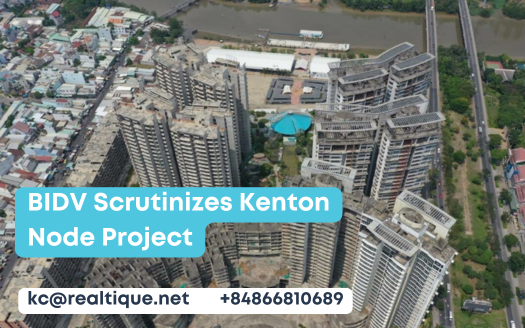BIDV Scrutinizes Kenton Node Project
BIDV’s recent decision to scrutinize the Kenton Node project account highlights the challenges of financial management in a volatile market. With the sale price adjusted to 4,419 billion VND and total liabilities surpassing 7,836 billion VND, the bank’s significant 58% stake raises questions about both the project’s viability and the strategic implications for potential buyers. As BIDV maneuvers through these complexities, the unfolding developments may reveal crucial observations into the future of the Kenton Node project and its impact on the wider financial environment. What might this mean for stakeholders involved?
Table of Contents
Sale of Kenton Node Account
Announcing a significant development, BIDV has put the Kenton Node account up for sale at a revised price of 4,419 billion VND, reflecting a decrease of 1,300 billion VND from its initial offering.
This marks the eighth announcement of account sales by BIDV, indicating a proactive approach to managing its financial obligations. The account encompasses both debt principal and interest, with total liabilities surpassing 5,720 billion VND.
Notably, the sale includes rights to land use and potential future assets located in the Phuoc Kien urban area. The adjustment in pricing suggests BIDV’s acknowledgment of current market conditions and the challenges associated with shifting buyer interest in the real estate sector amidst ongoing economic fluctuations.
Financial Institutions Involved
Several financial institutions play an essential role in the Kenton Node account’s sale process, with BIDV holding a dominant stake of 58%, valued at approximately 4,545 billion VND.
Alongside BIDV, other banks such as MSB and PVCombank are also involved, contributing to a total liability of 7,836 billion VND associated with the account.
MSB alone has reported liabilities exceeding 1,140 billion VND. The account comprises not only debt principal and interest but also overdue fees, highlighting the intricacies of the financial obligations tied to this project.
BIDV’s financial position significantly influences the sale, as its substantial stake is critical to attracting potential buyers and ensuring a successful transaction amidst challenging market conditions.
Project Overview and Timeline
The Kenton Node project, initially launched in 2009 under the name Kenton Residences, has undergone significant evolution since its inception.
Originally planned to include nine towers with 1,640 premium apartments, the project has faced numerous financial obstacles that have led to considerable delays.
Key developments in the project include:
- Renaming to the Kenton Node Hotel Complex, with a projected investment exceeding 1 billion USD.
- A shift in focus towards a mixed-use development incorporating residential, hotel, and commercial facilities.
- Ongoing evaluations to address financial challenges and reinvigorate progress.
As stakeholders assess the current state and future prospects, the project remains crucial in shaping the urban environment of the Phuoc Kien area.
Market Conditions and Challenges
Current market conditions pose significant challenges to the Kenton Node project and its associated account sales.
The real estate market is currently experiencing volatility, with fluctuating property prices that deter potential buyers. Economic instability has heightened caution among investors, leading to hesitance in committing to significant real estate transactions.
Additionally, high asking prices further complicate the sale process, as potential buyers may perceive the risks as outweighing the benefits. Experts indicate that these adverse market conditions are likely to prolong the sale of assets related to the Kenton Node project.
As stakeholders maneuver through this challenging environment, the necessity for strategic pricing and marketing becomes increasingly vital to attract interest and facilitate successful sales amidst ongoing uncertainties.
Recent Developments and Future Prospects
Recent developments surrounding the Kenton Node project indicate a complex terrain marked by both challenges and potential opportunities for revitalization.
In 2022, Novaland acquired the project, rebranding it as Grand Sentosa, aiming to rejuvenate the site. However, the venture has encountered further financial obstacles, leading to delays in progress.
Key factors influencing the project’s future prospects include:
- Ongoing evaluations of the project’s financial viability and market positioning.
- The impact of fluctuating real estate prices on investor interest and buyer confidence.
- Stakeholders’ renewed optimism for revitalization despite economic uncertainties and previous setbacks.
As the market stabilizes, the potential for successful development remains, contingent on strategic planning and effective financial management.





